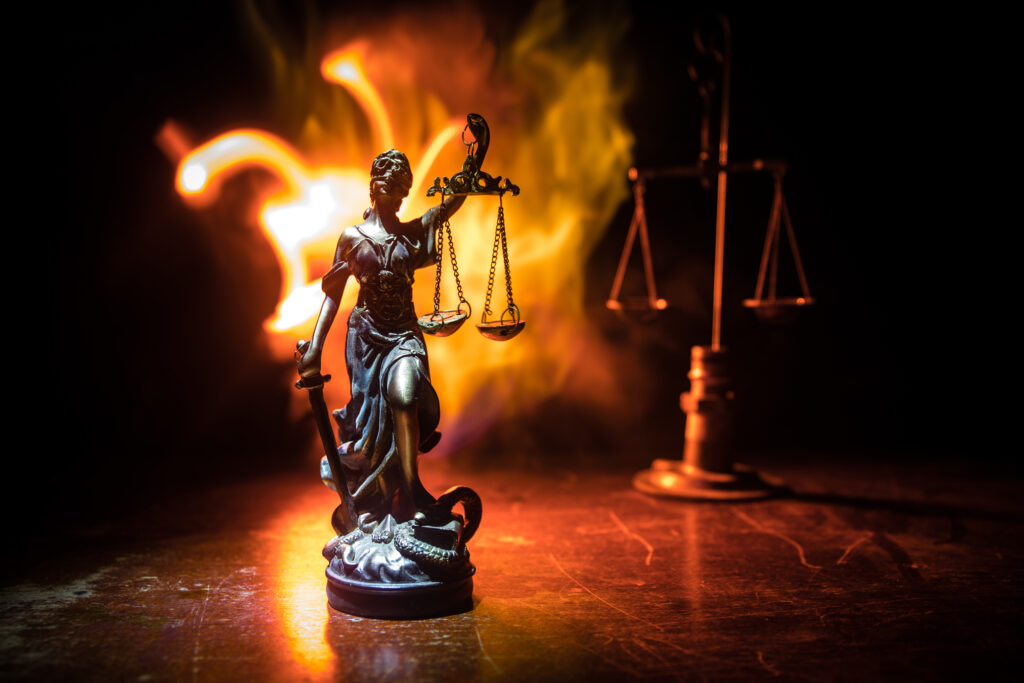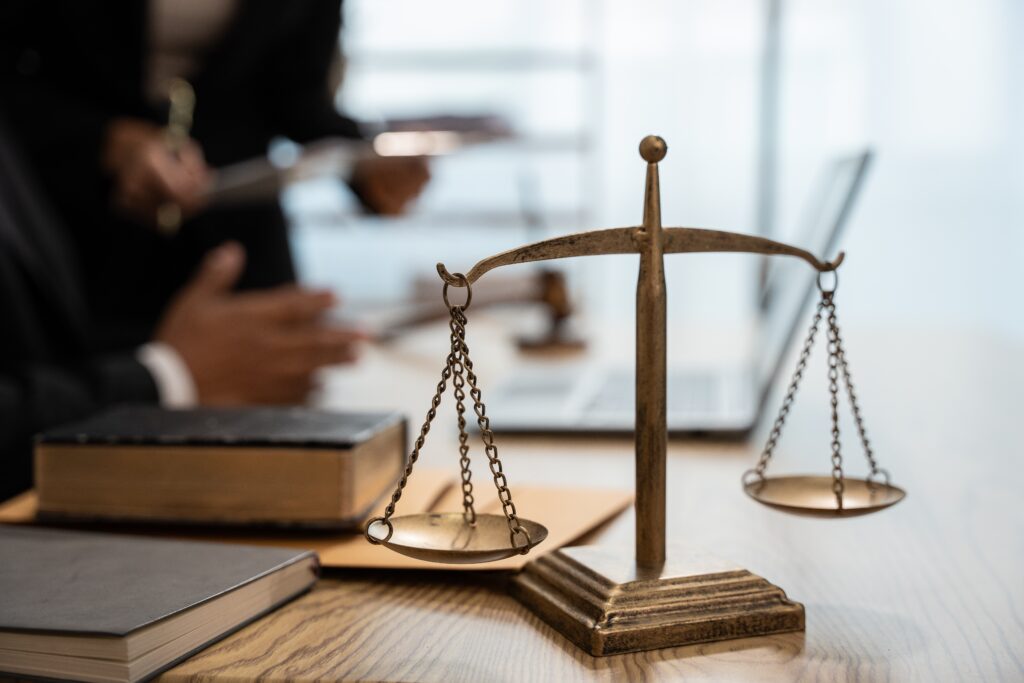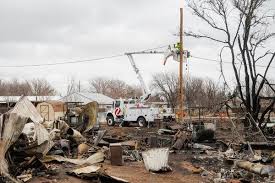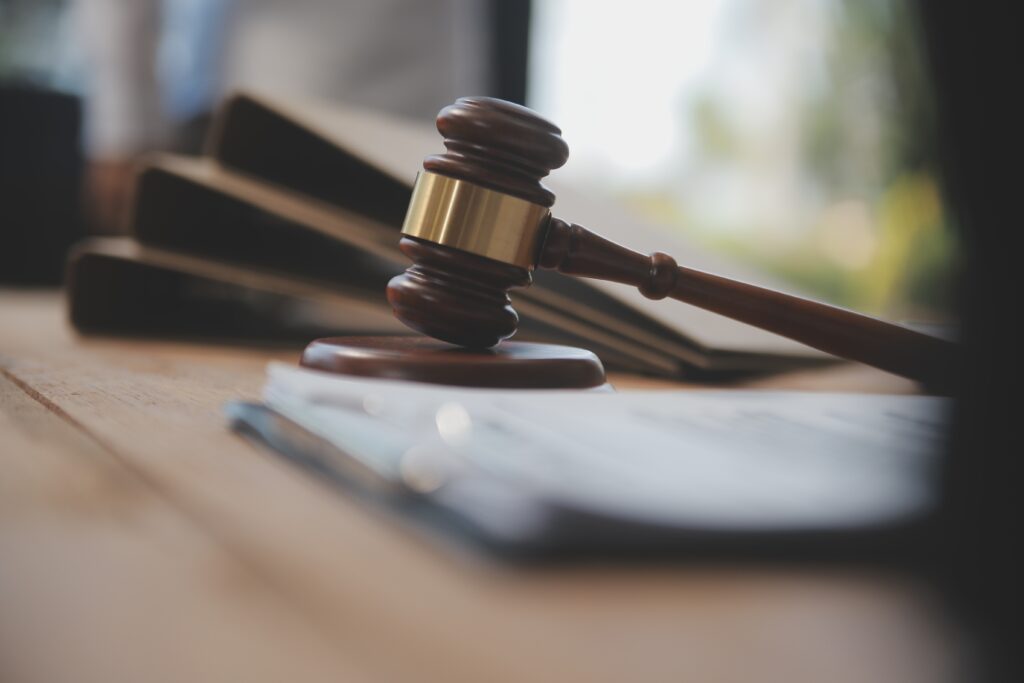Wildfires can damage homes, businesses, and entire communities. People sometimes want to seek justice in court when a major wildfire occurs. This might happen if a company or other entity may have caused or contributed to the fire. If you are considering going to court, you should understand how the lawsuit process works in California.

Why Might You File a Wildfire Lawsuit?
Wildfires in California can start for many reasons. Some begin because power lines spark in dry conditions. Others might happen when a corporation or public agency fails to manage land safely. When this happens, people who suffered losses may sue the responsible party.
You can file a lawsuit to recover money for damage to your home or land. It can also help pay for lost business income and personal injuries or, in some cases, punish the party that caused the fire. But not every wildfire leads to a court case. It depends on if there is a responsible party with the ability to pay.
How Do You Know If a Corporate or Entity Is at Fault?
Sometimes, it is clear. News reports might say the fire started because of an electric company’s power lines. Other times, investigations by fire officials will point to a company or a public agency. You might hear about it in official reports.
You can talk to a lawyer if you suspect a corporation or entity caused the wildfire. A California wildfire litigation lawyer can research and see if there is proof. If the evidence shows a big party acted carelessly or failed to do something important, that might be a basis for a lawsuit.
What Is the First Step: Determining the Basis for the Lawsuit?
Before you file anything in court, you must determine why you have a case. Lawyers call this “the legal basis” for the lawsuit. It means you have a claim against the party that caused the fire, like negligence or similar wrongdoing.
- Negligence means someone failed to act responsibly, leading to the fire. For example, if a company does not maintain a power line properly.
- Inverse Condemnation sometimes applies when a public utility’s actions damage private property.
- Other Tort Claims can include nuisance, trespass, or different rules tied to wildfire laws in California.
In California, certain wildfires may also fall under § 1701.8 of the Public Utilities Code. This rule talks about “catastrophic wildfire proceedings” for fires involving electrical corporations. Special steps can apply to your claim if an electric company caused the fire.
You should gather facts about how the fire started, who was involved, and how it harmed you. Your lawyer will check if these facts match a valid legal claim.
How Does a Wildfire Attorney Prepare the Complaint?

Once you have a claim, your wildfire lawyer must write a “complaint.” This is the paper you file in court to start the lawsuit. It should include:
- A short explanation of what happened during the wildfire.
- The reasons the party you are suing (the defendant) is at fault—like negligence.
- The harm you suffered, such as burned property or personal injuries.
- The specific damages you want the court to award.
If you want punitive damages—extra money to punish bad conduct—your attorney might ask for them under California Civil Code § 3294. However, these damages only apply in certain cases, such as when the wrongdoer acts with malice or extreme recklessness.
What Is the Statute of Limitations?
A statute of limitations is the time limit for filing your lawsuit. If you miss it, the court might dismiss your case. That means you lose your chance to collect damages.
For wildfires, the time limit often depends on the type of claim. For example, if you are claiming damage based on a statute like § 13009 of the Health & Safety Code (deals with firefighting expenses) or § 338 of the Code of Civil Procedure (covers certain property damage claims), you have to file within the time allowed by these laws.
§ 338 usually provides three years for damage to real property or injuries tied to a statutory liability. However, specifics can vary depending on the details. Some claims might have shorter or longer windows, or there may be special tolling rules.
That is why it helps to immediately talk to a California wildfire litigation lawyer. They can tell you which statute of limitations applies to your case.
What Are Special Considerations for Wildfire Lawsuits?
California has specific laws for wildfires. One example is § 1701.8 of the Public Utilities Code. This section mentions “catastrophic wildfire proceedings,” affecting how claims against electrical corporations work. You might have extra steps if an electric company’s equipment caused the wildfire.
If a public agency wants to recover costs for fighting the fire, it can file a suit under § 13009 of the Health & Safety Code. This rule lets the agency collect firefighting costs from the party that caused the fire. When an agency does this, they must list their costs in the complaint.
Also, if there are many lawsuits from the same big wildfire, they might become a Judicial Council coordination proceeding. This means the court system merges or coordinates them to handle them more efficiently. For instance, a famous example is the Butte Fire Case. In that situation, multiple people sued over a large wildfire, and the court consolidated their cases. Another example is Simple Avo Paradise Ranch, LLC v. Southern California Edison Co., which also dealt with wildfire-related claims.
These cases can get complex, so having a lawyer is very helpful.
Do You Need a Lawyer to File a Wildfire Lawsuit?
You should always have legal representation. Wildfire cases can be complicated. You must follow strict rules about writing the complaint, serving papers, and gathering evidence. If you do it alone, mistakes can lead to delays or dismissals.
A California wildfire litigation lawyer knows the right steps. They can also help investigate the fire’s cause, gather expert witnesses, and calculate how much your case is worth. They understand the special rules for utility companies or other entities.
Can Multiple People Join One Lawsuit?
Yes. Sometimes, a group of people harmed by the same wildfire will join. The court may order this to be a "mass tort" or a "coordinated proceeding." By joining forces, they can share evidence and legal resources.
But each person might have different damages. The court still looks at each case individually to see how much each claimant deserves. You must keep track of your deadlines and paperwork, even in a coordinated case.
What Happens After the Complaint Is Filed?
Once you file the complaint, the case moves forward in several stages:
- Answer or Demurrer: The defendant will respond. They might file an “answer,” agreeing or disagreeing with your claims. Or they might file a “demurrer,” saying your complaint is missing something.
- Discovery: Both sides exchange information. You might request documents from the defendant, and they can request information from you. You might also take depositions, where you ask questions under oath.
- Motions: Either side can ask the court to decide certain issues. For instance, a “motion to dismiss” might say you missed the statute of limitations. Or a “motion for summary judgment” might say there is no real dispute, and the court should rule without a trial.
- Settlement Talks: Many wildfire cases settle before trial. Both sides might decide it is better to agree on a sum of money rather than battle in court.
- Trial: The case goes to trial if the parties do not settle. A judge or jury will decide if the defendant caused your damage and how much to award you.
This process can take a long time—months or even years—especially if the wildfire is large.
What If the Lawsuit Is Against an Electrical Corporation?

You might deal with special rules under the California Public Utilities Code when an electrical corporation is involved. § 1701.8 addresses catastrophic wildfires caused by electrical corporations. If your wildfire qualifies under these rules, the proceedings can follow unique guidelines set by the California Public Utilities Commission.
Sometimes, these corporations also have a “Wildfire Fund,” which might help pay valid claims. The details of how that fund works can be complicated. A lawyer focusing on wildfire litigation can guide you through these special processes.
How Do Courts Handle Large-Scale Wildfire Cases?
Many people may file lawsuits in massive wildfires—like some that have burned thousands of homes. Courts sometimes combine them through a process called “coordination.” That way, one judge or a group of judges can manage the discovery, motions, and other steps together.
For example, the court joined many lawsuits in the Butte Fire Cases, helping streamline the process. Also, in Simple Avo Paradise Ranch, LLC v. Southern California Edison Co., multiple claims related to a single wildfire were handled together.
Coordination does not mean that every case gets treated the same. But it does mean certain steps—like figuring out what caused the fire—are handled once instead of repeating the same steps hundreds of times.
How Does Coordination Work?
When a huge wildfire harms thousands of people, many individuals might file complaints in different courts. The Judicial Council might order these cases to be “coordinated” in one location under one or more judges.
That means all the parties share information. There might be a “lead counsel” who represents a large group of plaintiffs. The court sets the schedule for discovery and motions. This approach helps avoid repeating the same tasks in multiple courts.
Butte Fire Cases, 24 Cal. App. 5th 1150, and Simple Avo Paradise Ranch, LLC v. Southern California Edison Co., 102 Cal. App. 5th 281 are examples of such coordinated wildfires. People came together to handle these cases more efficiently.
Can You File Suit If You Are a Renter?
Yes. You might have a claim if your personal belongings were destroyed or injured. You do not have to own the burned building. You can sue for lost property, medical bills, or other damages.
However, you cannot claim damage for the structure itself if you do not own it. That will be up to the landlord or property owner.
What Happens When the Case Ends?
If you settle, you will sign an agreement. The defendant often pays you, and you promise not to sue again about the same issue. If the case goes to trial and you win, the court enters a judgment saying how much you get.
You might need to enforce the judgment if the defendant does not pay. That can involve garnishing earnings or attaching bank accounts. Most large companies, though, will pay if the court orders them to.
Should You Talk to a Lawyer Before Filing?
Absolutely. Even if you plan to represent yourself, a brief conversation with a California wildfire litigation lawyer can clarify your rights and options. They can tell you if your case is strong or if you might encounter obstacles. They can also explain how long you must file and whether the special rules under § 1701.8 or § 13009 might apply.
Lawyers also know how to handle big corporate defendants and their insurance companies. They can negotiate on your behalf, gather evidence, and present a stronger case in court.
Contact a California Wildlife Litigation Lawyer Today

Filing a wildfire lawsuit in California can be complicated, but it is often the only way to seek a fair recovery from a big company or entity. You must identify who caused the fire, write and file a complaint, serve the defendant, and follow strict time limits. You also must gather evidence of your losses to prove your case.
If you are considering filing a lawsuit, do not wait. Talk to a professional who understands wildfire cases. A California wildfire litigation lawyer can walk you through each step, explain the relevant laws, and work to secure the best possible outcome for your situation.
Ready to explore your legal options? Call 1-800-WILDFIRE and contact a California wildfire litigation lawyer today. They can examine your case, answer your questions, and give you the clarity you need to confidently move forward. Wildfires can leave you feeling overwhelmed, but with the right legal support, you can take a step toward rebuilding your life.